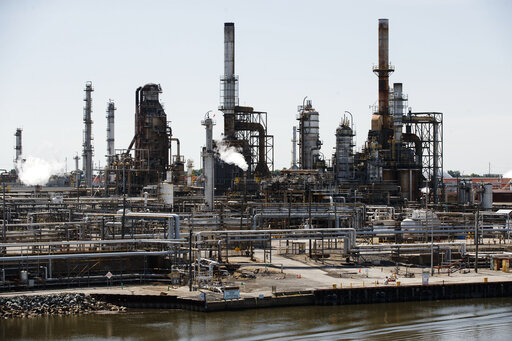NEW YORK/HOUSTON — U.S. oil refining capacity this year could decline by the largest amount in nearly a decade as pandemic-related travel curbs and a fire shut several plants, reversing years of small gains.
Refiners globally have been idling plants as the COVID-19 pandemic slashed fuel demand as much as 30%. In the United States, Marathon Petroleum Corp will close California and New Mexico plants in response to the demand slump.
Philadelphia Energy Solutions closed and sold its refinery to a property developer after a fire and series of explosions tore through the plant last summer.
The three processed a combined 523,000 barrels per day of oil, or nearly 3% of total U.S. refining, reducing capacity to 18.5 million bpd, according to Reuters calculations.
The last large drop was in 2012 when a refinery in the U.S. Virgin Islands was shut, reducing overall capacity by 408,000 bpd. An investor group acquired the plant and aims to restart it this year, which would add 200,000 bpd, and could dampen the sharp fall in capacity.
But the pandemic also is rolling back planned additions and some analysts think additional plants may close. Exxon Mobil Corp recently delayed until 2023 an expansion of its Beaumont, Texas, refinery that would nearly double its capacity.
Past recessions temporarily cut growth, but this year’s sharp drop likely will halt expansions for some time, said David Hackett, president of fuels consultancy Stillwater Associates.
“COVID-19 has taught us people really can work from home,” he said, estimating demand for motor fuels could remain depressed through 2021.
U.S. refiners increased overall capacity most years even as the number of refineries has fallen since 1981. Total capacity last fell by more than half a million bpd in 1992 when 575,000 bpd was lost following the 1990-1991 recession.
Overall gains could resume in 2021, said John Auers, an executive vice president at oil and petrochemical consultants Turner, Mason & Co.
But he cautioned a return to historical annual increases “will really be driven by the ability to grow exports” of gasoline, diesel and jet fuel.
About the photo: Exhaust billows from Philadelphia Energy Solutions Refining Complex in Philadelphia, Thursday, June 27, 2019. The largest oil refinery on the East Coast said Wednesday that it will close after a devastating fire last week that set off explosions and damaged equipment. (AP Photo/Matt Rourke)
Was this article valuable?
Here are more articles you may enjoy.


 Red Flags Adjusters Should Look for in Truck Accident Claims Investigations
Red Flags Adjusters Should Look for in Truck Accident Claims Investigations  Building Fortification And The Role of The Insurance Industry
Building Fortification And The Role of The Insurance Industry  Stellantis Weighs Using China EV Tech for Affordable Cars
Stellantis Weighs Using China EV Tech for Affordable Cars  Asbestos Lawsuits Prompt Vanderbilt Minerals to File Bankruptcy
Asbestos Lawsuits Prompt Vanderbilt Minerals to File Bankruptcy 